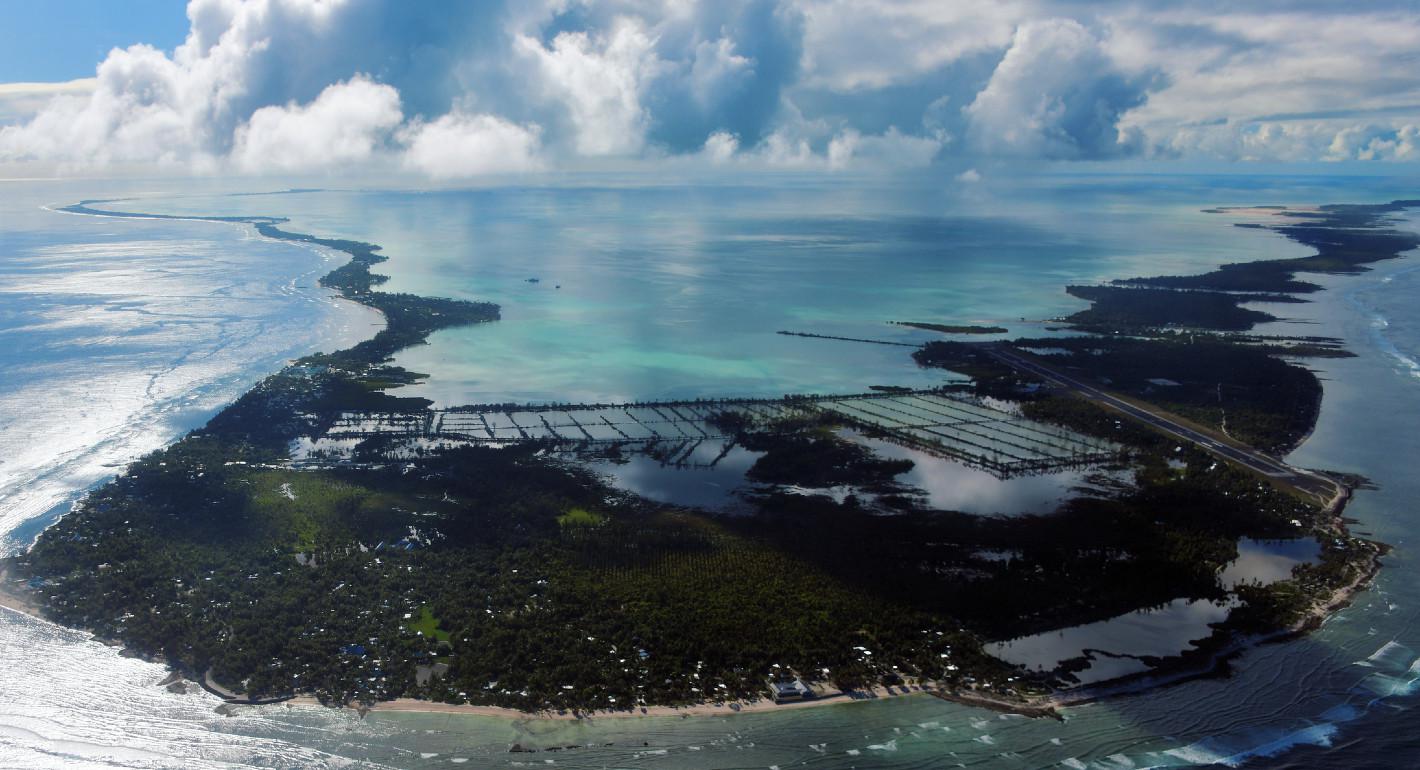The oceans offer the world the most outsized opportunity at limiting the planet to the 1.5 degree Celsius warming target. A recent report estimated that ocean-based climate solutions like the restoration of coastal ecosystems, use of ocean based renewable energies, and the sustainable management of fisheries have the potential to account for more than a fifth of greenhouse gas emissions cuts by 2050. In addition, oceans are profoundly important for small island states, whose economies, identities, and security depend on the health of the oceans. But the major powers often focus on the world’s forests, carbon-removal technologies, and transitions to renewable energies—overlooking the oceans’ potential and the islands’ needs.
This past September, leaders of island states from across the Indian Ocean and Blue Pacific spoke about the disconnect between the potential that ocean communities have to address climate change and the limited resources available to them to invest and undertake these actions at scale. COP28 in Dubai is an opportunity to elevate these concerns on the global stage and set a more ambitious trajectory for climate adaptation and mitigation.
The ocean offers broad benefits on both local and global levels. Every dollar invested in the ocean gives approximately a $30 return to small island states and up to $5 globally. Given the limitations of climate finance, this return is the most compelling argument to shift public opinion in support of climate action and ocean conservation. The first global stocktake of the progress since the 2015 Paris Agreement is likely to validate this argument. In addition, helping small island states manage blue carbon ecosystems comprised of seagrass meadows, tidal marshes, and mangrove forests would be a major climate mitigation tool, as these carbon sinks store five times more carbon than tropical forests.
Over the next few decades, four crucial factors will contribute to the ocean’s ability to play a critical role in stabilizing the climate crisis. The first is how rapidly the world can both decarbonize in areas such as shipping and ocean-based tourism and undertake the necessary land-based actions such as prohibiting the use of harmful pesticides for agriculture that have adverse marine consequences. The second is how well the world prepares for, regulates, and manages new technologies such as seabed mining, industrial fisheries, plastics, and other maritime resources amid rapidly warming oceans. It also includes how much the world can reduce offshore oil and gas production—while increasing tidal and other ocean-based solutions for renewable energy. The third is how rapidly the world can expand areas under marine protection, including coastal mangrove forests, seagrass meadows, tidal marshes, coral reefs, and areas of high importance to maintaining biodiversity. The final factor is how quickly the world can put in place the necessary financing mechanisms that support vulnerable and especially small island states to undertake all of the above.
The world—including small island states—is failing on all of the above. Both Kiribati and Palau have rolled back marine protected areas under their authority. Tourism and elite interests continue to clash with coastal area protection efforts, such as on mangrove forests. Transformations in agriculture and in eliminating plastics remain frustratingly slow. Some small island states are getting impatient and growing increasingly frustrated at the seemingly empty commitments by wealthy countries and large developing countries to protecting and restoring the ocean and to realizing its outsized contribution to greenhouse gas emissions reductions.
Ocean experts and scientists across numerous disciplines have come to a clear conclusion across these four factors. The world needs exponential investment, not an incremental boost. The pace of progress on the protection of coral reefs is steady but far too slow. Private sector financing is beginning to flow into the Blue Pacific but not at needed rates. Many of the concessional and public finance windows available remain burdened by red tape, making them inaccessible to small island states. At COP28, the world needs a new Blue Deal.
Is a new Blue Deal possible? Perhaps. This year’s host has waved strong blue credentials throughout the preparations leading to the climate summit. The United States and many ocean-state leaders across the world are pushing to bring ocean priorities onto the center stage of climate solutions.
A global blue deal will likely be framed around four components:
First, it will require substantive commitments to at least double the blue component—the world’s lakes, rivers, glaciers, and seas—of nationally determined contributions to expand protections for mangroves, seagrass, marshlands, and similar defenses, by no later than 2035.
Second, the fourteenth Sustainable Development Goal on ocean conservation is the least funded. A blue deal will require a substantive commitment to at least double the grant financing available to support this goal and to ensure that finance remains consistent and readily available to small island states. This may include targets for earmarking climate funds for blue activities such as through the Green Climate Fund and multilateral development banks.
Third, the deal must firm up the commitment to protect 30 percent of the world’s seas that lie within the jurisdiction of countries, as well as extend protection on high seas for all areas sensitive to marine biodiversity.
Finally, the blue deal must focus on new commitments to reduce the greenhouse gas emissions through a rapid and measurable transition away from oil and gas extractions on the seas. It must pledge to increase tidal, wind, and solar farms on the seas.
At Carnegie’s most recent Indo-Pacific Islands Dialogue, island leaders and communities voiced their support for climate action. But the world cannot rely on the commitment of small island states—which are among the most climate vulnerable in the world—to remedy the disaster created by larger industrialized countries, which must deliver on their side of the bargain. The small islands want their partners at COP28 to commit to consistent support for ocean and climate action and, in doing so, can turn the corner on climate battles.
